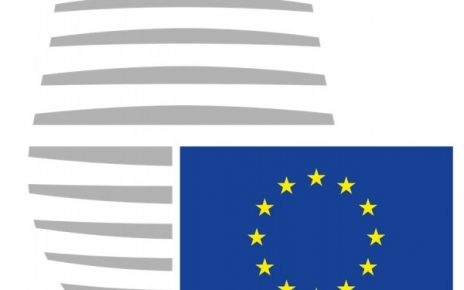At TIME 2023, the first Global Summit of the World Tourism Network, this will be included in the aviation and climate change panel by Vijay Poonoosamy an Honorary Member of the Hermes Air Transport Organization, and Chair of the WTN aviation interest group.
Professor Geoffrey Lipman, leading SUNx Malta and also a VP for World Tourism Network and former IATA executive, former first WTTC CEO, and former Assistant Secretary General of UNWTO, will be seeing this from the climate change site.
THe World Tourism Network Chairman often stated tourism is a business, and net zero ambitions cannot be wishful thinking, specifically when it comes to the needed cooperation by SMEs. SMEs matter – and this is what TIME 2023 in Bali will be about.
Net zero for aviation may sound far away, but in reality, it’s 27 years from now. Considering how long it has taken human beings to mess up the planet’s eco balance, that’s just a blip on the air highway of aviation. And yes, cars contribute to emissions as well, but the truth is that the aviation sector is a significant contributor to greenhouse gas emissions, primarily through the combustion of jet fuel.
Various strategies and technologies are being pursued to reduce and offset the carbon footprint of aviation operations. For example, replacing conventional jet fuels with Sustainable Aviation Fuels (SAFs) derived from renewable feedstocks like biomass, waste, or synthetic processes is one form of utilizing renewable energy. SAFs have the potential to significantly reduce the carbon emissions associated with aviation without requiring major modifications to existing aircraft or infrastructure.
As is the case with vehicles on the road going from fossil fuel to electricity, electric aviation is another avenue being explored to reduce emissions. Electric aircraft use electric motors powered by batteries or fuel cells, eliminating direct emissions. However, the challenge here is the same as with cars on the road – the range and carrying capacity of electric aircraft are currently limited, making them more suitable for short-haul and regional flights.
A compromise here would be hybrid-electric aircraft which combines conventional jet engines with electric propulsion systems. This approach allows for improved fuel efficiency and reduced emissions by utilizing electric power during certain phases of flight. Hybrid systems can be applied to both existing and future aircraft designs.
Continuous advancements in aircraft design and aerodynamics can enhance fuel efficiency and reduce emissions. Lighter materials, improved engine technology, and more efficient aircraft configurations contribute to reducing the environmental impact of aviation.
Beyond the Aircraft
Going beyond the aircraft in the sky, improved air traffic management could contribute to emissions reductions by optimizing flight routes, reducing congestion, and minimizing unnecessary fuel burn. Advanced technologies, such as next-generation air traffic control systems and data analytics, can help achieve these improvements.
To compensate for the remaining emissions that cannot be eliminated through technological advancements alone, airlines and aviation organizations can invest in carbon offset projects. These projects aim to reduce emissions elsewhere, such as reforestation, renewable energy projects, or other carbon capture and storage initiatives.
Achieving net zero aviation is a complex challenge that requires a multi-faceted approach involving technological advancements, policy support, and industry collaboration. While progress is being made, transitioning the aviation industry to a net-zero carbon future will take time and concerted efforts from all stakeholders involved.
Ongoing research and development efforts are essential for identifying and implementing innovative solutions to achieve net zero aviation. Collaboration between governments, industry stakeholders, and research institutions is critical to drive progress in this area.
Big Brother is Watching
Said Marie Owens Thomsen, Senior Vice President of Sustainability and Chief Economist of the International Air Transport Association (IATA):
“Transparency is a critical element of aviation’s decarbonization.”
“We will report our progress annually to ensure standardized, accurate, and comprehensive reporting of aviation’s journey to net zero. Industry-level data in the Track Zero report will help airlines, governments, and investors with tools to improve decision-making to accelerate progress.”
IATA’s goal is to help keep aviation on track toward achieving net zero emissions through the publication of this annual Track Zero report using the Net Zero Tracking Methodology. This methodology and related reporting process were developed with industry experts.
Individual airlines may use the aggregate data of the Track Zero report to benchmark their own progress toward decarbonization. They may also choose to report their progress on decarbonization to key stakeholders including governments, investors, and customers, using IATA’s Net Zero Tracking Methodology. Owens added:
“Decarbonization is an industry challenge, not a competitive issue. Nonetheless, the report and the methodology behind it can enable benchmarking that could intensify decarbonization efforts by spreading the success of best practices and sparking innovation.”
Key features of the Net Zero Tracking Methodology include:
Standardization: The methodology establishes a transparent framework for accurate reporting that can be used industry-wide by identifying the relevant emissions scope, sources, and processes for emissions tracking and measurement.
Read more: SMEs Matter When Putting Net Zero Pressure on Aviation
Copyright: eTurboNews is Travel Industry News – Travel & Tourism Story Telling Exposed





